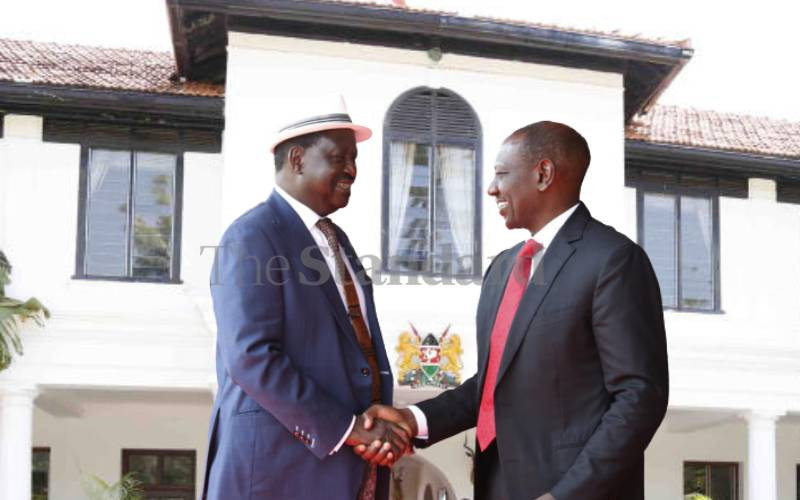×
The Standard e-Paper
Fearless, Trusted News

Questions have been raised about what was discussed at the meeting that took place last week between President William Ruto and Azimio la Umoja One Kenya leader Raila Odinga.
Conflicting statements released by Azimio and Ruto's Kenya Kwanza over the agreed agenda and how the talks will proceed under the conciliation of former Nigeria President Olusegun Obasanjo has only caused more confusion.